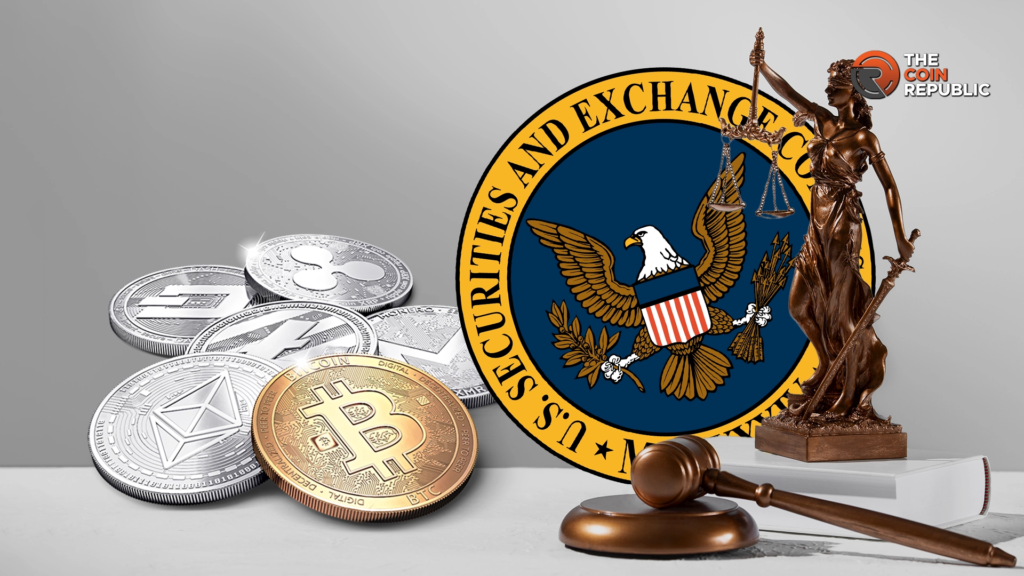The United States is moving toward stricter and clearer cryptocurrency regulations. With the growing use of digital assets like Bitcoin, Ethereum, and many others, lawmakers are working hard to protect investors, stop fraud, and bring more transparency to the market. Cryptocurrency has grown rapidly over the last decade, becoming a major part of the financial world. But with rapid growth comes risk and uncertainty.

So, what does this push for regulation mean for the future of crypto in the U.S.? Will new rules protect investors or slow down innovation? This article breaks down the current regulatory landscape, upcoming laws, and what these changes could mean for users, businesses, and investors.
Why the U.S. Wants to Regulate Crypto
Cryptocurrency has evolved from a niche hobby into a massive global industry worth billions. However, this growth has also brought serious challenges, such as:
- Fraud and scams: Unscrupulous actors have taken advantage of the hype, tricking investors and causing large losses.
- Market manipulation: Some crypto markets lack proper oversight, allowing price manipulation that hurts small investors.
- Lack of consumer protection: Many platforms operate without clear rules, putting users at risk if exchanges fail or disappear.
- Unclear tax rules: Many people don’t fully understand how to report crypto income, leading to confusion and legal trouble.
Because of these issues, lawmakers and regulators believe that stronger regulation is needed to protect consumers without stopping innovation. The goal is to make crypto safer while still encouraging new technology and investment opportunities.
Learn more about how crypto scams are evolving
Current Crypto Regulations in the U.S.
Right now, there is no single law in the U.S. that covers cryptocurrency fully. Instead, several government agencies oversee different parts of the crypto world:
- SEC (Securities and Exchange Commission): The SEC regulates crypto tokens that act like securities (investment contracts). They focus on protecting investors in crypto projects that resemble stocks or bonds.
- CFTC (Commodity Futures Trading Commission): The CFTC treats some cryptocurrencies like commodities, similar to gold or oil, and monitors derivatives and futures trading on these assets.
- IRS (Internal Revenue Service): The IRS treats cryptocurrencies as property for tax purposes. This means users must report any gains or losses on their tax returns.
- FinCEN (Financial Crimes Enforcement Network): FinCEN enforces anti-money laundering rules. Crypto exchanges and wallet providers must comply with “Know Your Customer” (KYC) and reporting requirements to prevent illegal activities.
The problem is that these different agencies sometimes have overlapping or conflicting rules, which creates confusion for companies and users trying to stay legal.
Read how the SEC is cracking down on crypto platforms
What’s Changing? Key Crypto Bills and Proposals
To fix the regulatory gaps, lawmakers have introduced several bills that could reshape how cryptocurrency is regulated:
1. The Lummis-Gillibrand Bill
One of the most talked-about proposals is the Lummis-Gillibrand bill. It aims to create a clear and workable framework that defines which cryptocurrencies are commodities and which are securities. The bill also addresses important issues like stablecoins (digital tokens pegged to the dollar), tax reporting, and transparency for investors.
If passed, this bill could give the industry a much-needed clear set of rules, encouraging more institutional investors to join the market.
2. Digital Asset Anti-Money Laundering Act
This proposed law would require crypto wallets and exchanges to follow strict KYC rules. Users would have to verify their identity before trading or transferring crypto. This act is designed to prevent money laundering and terrorism financing but could reduce user privacy.
3. STABLE Act
The STABLE Act focuses on stablecoins, aiming to regulate them similarly to traditional banks because of their potential impact on the financial system. Stablecoins are often used for fast transactions and payments, so regulating them carefully is seen as crucial.
Together, these bills suggest the U.S. wants to bring cryptocurrencies closer to traditional financial regulation, balancing innovation with safety.
Impact on Crypto Users and Investors
If these regulations become law, here are some ways they could affect crypto users:
- Better consumer protection: New rules could reduce scams and make crypto exchanges safer and more reliable.
- More taxes: Users will need to carefully track and report all crypto transactions to the IRS. This could mean more paperwork but also clearer tax obligations.
- Less anonymity: Stronger KYC rules will make it harder to use crypto anonymously, which might frustrate privacy-focused users.
- More legitimacy: Clear regulations could encourage large banks and financial institutions to enter the crypto space, increasing stability and options for investors.
Understanding these changes can help you prepare for the future and protect your investments.
Understand crypto tax rules directly from the IRS
What Crypto Companies Think
Most crypto companies want reasonable regulations. They don’t want laws that are too strict or unclear, which could slow innovation or drive companies overseas. Instead, they support rules that protect users while giving businesses a fair and clear operating environment.

Major platforms like Coinbase and Kraken are actively working with lawmakers and regulators to help create balanced rules. They believe regulation will help the industry grow and attract more users.
Coinbase’s views on U.S. crypto regulation
Global Context: How the U.S. Compares
Other countries are moving faster than the U.S. in regulating cryptocurrencies. For example:
- The European Union has introduced MiCA (Markets in Crypto-Assets), a comprehensive set of rules designed to regulate the crypto market across all member states.
- Singapore has also implemented clear crypto regulations, making it a hub for blockchain businesses.
The U.S. is playing catch-up, but experts believe that how it regulates crypto will influence global policies, making U.S. decisions critically important.
EU’s MiCA Law: A Global Model for Crypto Regulation
Conclusion
The U.S. is entering a new and important phase in cryptocurrency regulation. Whether you are an investor, trader, or simply curious about digital currencies, staying informed is vital. New regulations could reduce fraud, increase trust, and attract more big players to the market.
However, these rules will also bring more reporting requirements, less privacy, and changes in how cryptocurrencies are used daily. The future of crypto in the U.S. depends on lawmakers finding the right balance between safety and innovation.
Also Read – Top Stock Market Trends You Must Know Before Investing






